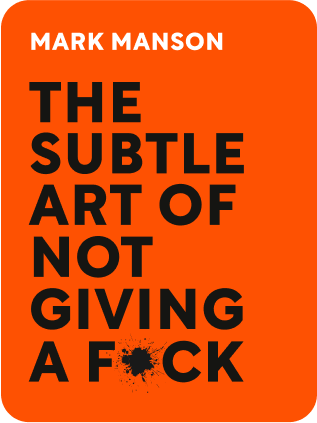

This article is an excerpt from the Shortform book guide to "The Subtle Art of Not Giving a F*ck" by Mark Manson. Shortform has the world's best summaries and analyses of books you should be reading.
Like this article? Sign up for a free trial here .
Why do negative emotions tend to stack on one another? What caused the stigma around negative emotions? How can we escape this feedback loop from Hell?
You know the feeling: you get angry, then you get angry at yourself for getting angry, then you’re angry about being angry over being angry. It’s the feedback loop from Hell.
Continue reading to learn what causes the emotional feedback loop and how to escape it.
Trapped in the Feedback Loop From Hell
Unlike animals, we have the unique ability to think and examine our thoughts. This ability, combined with our fixation on being happy all the time, can create an unproductive feedback loop (or as Mark Manson calls it in The Subtle Art of Not Giving a F*ck, the feedback loop from Hell) in which our feelings spiral out of control whenever we begin to feel bad about something.
For instance, suppose you have a problem with getting angry about small things. You know you shouldn’t, but you get ticked off about something. You then start to get even more angry about getting ticked off in the first place. You berate yourself for that too, because you’re not supposed to be getting angry. In effect, you’re angry at yourself for getting angry about getting angry. You can get into negative feedback loops with other emotions as well, like feeling anxious about feeling anxious, or guilty about feeling guilty.
We feel bad about feeling bad because of our culturally driven belief that we shouldn’t feel bad — that guilt, anxiety, fear, and other negative feelings are not OK. This creates the feedback loop from Hell.
Social media reinforces this by depicting other people in happy situations all the time — on Facebook people tout their greatest experiences and accomplishments. This can leave us feeling inadequate by comparison. When we don’t feel happy all the time too, we feel there is something wrong with us.
By contrast, back in your grandfather’s time, people weren’t constantly flooded with images of other people leading ecstatic, perfect lives. And so they didn’t obsess as much over feeling bad. When your grandfather felt bad, he was more likely to shake it off because he had too much work to do to waste time feeling sorry for himself.
The key to breaking out of the feedback loop from hell is to not take your feelings so seriously — to not give a f*ck. Tell yourself: Things are screwed up and I feel bad, but so what. This frees you to stop berating yourself because you feel bad.
Giving Too Many F*cks
The problem with trying to not give a f*ck is that we have so many options and opportunities that we don’t know what to give a f*ck about, and we end up obsessing about every little thing.
We spend too much of our time caring about things not worth our time. For instance, we get upset when a favorite show is canceled, when someone cuts in line, or we feel slighted. This siphons energy from caring about more important things. We can’t care about everything equally — we have a limited number of f*cks to give.
We keep giving too many f*cks because we feel entitled to perpetual happiness and comfort, and expect everything to be the way we want it. This leads to meltdowns as little things take on huge proportions. For instance, disagreements seem to be betrayals, inconveniences become insults, challenges feel like failures. It’s a personal feedback loop that keeps you from getting anywhere.
Counterculture philosopher Alan Watts referred to this as the “backwards law:” The more you strive to feel better and happier, the less satisfied you become — because pursuing something reminds you that you don’t have it.
We need to learn how to choose what matters and what doesn’t based on a set of personal values we identify. Learning to prioritize and focus is difficult — but it may be our most important task in life.

———End of Preview———
Like what you just read? Read the rest of the world's best book summary and analysis of Mark Manson's "The Subtle Art of Not Giving a F*ck" at Shortform .
Here's what you'll find in our full The Subtle Art of Not Giving a F*ck summary :
- How to clarify what's important to you (and not just what you think should be important)
- Why it's okay for things to not always go well in life
- Why you need to care about fewer things






